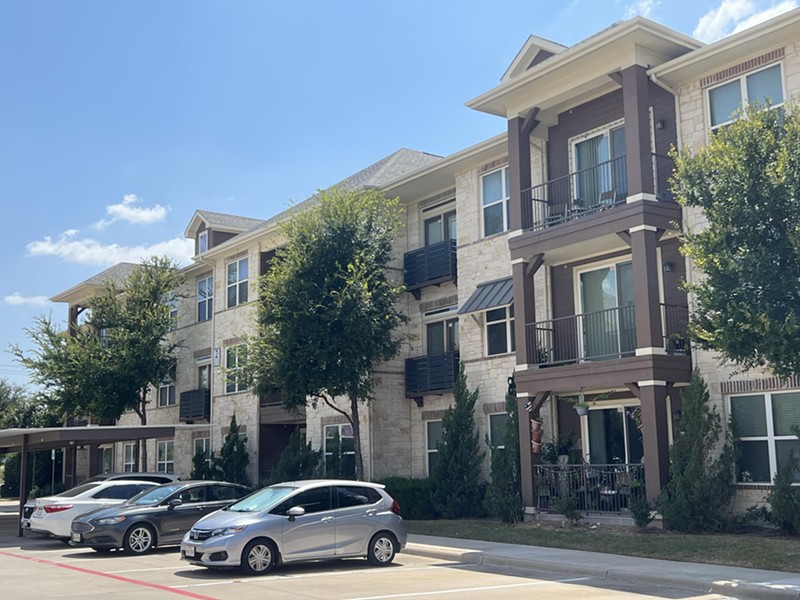Melton helped start the Dallas Eviction Advocacy Center, a team of attorneys and staffers who assist people facing evictions. His job takes him to plenty of apartment complexes, so he’s seen plenty of bad policies, especially in South Dallas, “where the landlords would put rules on these people like it was a halfway house.”
He’s seen residents asked to be inside their unit after dark and prohibited from congregating. “These aren’t criminals,” Melton said. “It’s not a jail. It’s not a halfway house. It’s just a regular old apartment, but they impose some really strict house rules on everyone that lived there.”
Residents have told him they hate living in such an environment.
In a post in the locally popular Facebook group Reform Dallas, we asked people for examples of overbearing apartment regulations. Those who responded complained about hidden fees, mandatory rental insurance, really bad WiFi and not being allowed to smoke or vape on the premises or to walk around the apartment complex.
Melton said some apartment complexes have rules in place, legal or not, just so it’s easier to evict people.
“The real issue, oftentimes, is that the tenant got upset with the property manager because their air conditioner didn’t work and it wouldn’t get fixed fast enough, or there was a leak in the apartment,” Melton added. “The tenant will get pissed off and the second they raise their voice, they [landlords] get upset and find a reason to evict them.”
This type of landlord retaliation is explicitly prohibited in the Dallas City Code. If you’re a tenant who believes that your landlord is retaliating against you, you can file a written complaint with the city attorney’s office. Examples of this retaliation would include rent increases, diminished services or eviction in response to a complaint. Retaliation against tenants is also barred by Texas law.“It’s not a jail. It’s not a halfway house. It’s just a regular old apartment ..." – Mark Melton, attorney
tweet this
Melton explained that some landlords will impose strict regulations after a lease has already been signed, which also isn’t legal.
“You can’t unilaterally change the rules,” he said. Landlords will say some policies, like requiring tenants to be inside after dark, are crime prevention measures.
In 2009, a North Dallas apartment complex established a 9 p.m. curfew and threatened to evict people who didn’t follow it, according to NBCDFW. The curfew was touted as a means to prevent crime. Last year in Austin, an apartment complex tried to enact a 10 p.m. – 5 a.m. curfew but did away with the rule after resident complaints made news, according to KVUE. The initial notice about the restriction said it was meant to address security, and public health and safety concerns.
“They want the tenant to deal with the problems that they should otherwise deal with on repairs or anything else,” Melton said.
According to the Texas State Law Library, state law doesn't have a lot to say about some of these apartment rules. The law library’s website says it receives a lot of questions about whether a lease can contain certain requirements.
“People ask about rules like curfews, electronic rent payments, renter's insurance and other topics,” the website says. “Texas statutes generally do not discuss whether or not leases can have these kinds of rules. Instead, Texas laws about what can and cannot be in a lease focus on making sure that a landlord cannot make a tenant waive a right that is guaranteed under the law.”
So, it’s not easy to say how legal some of these rules are. However, there was one clear-cut case in which a Fort Worth tenant was being evicted because they owned a handgun. “In Texas, that’s illegal,” Melton said. “But other than that, if you put it in the lease, you can pretty much agree to whatever you want.”
What also happens sometimes is a new management company will take over a complex and try to institute new rules. Tenants don’t always know this, but they don’t have to abide by the new restrictions, Melton said.
“They don’t know that they don’t have to follow them if they don’t want to, and then the landlord will evict them anyway,” he said.
On top of that, the justice of the peace judges who take up the eviction might not necessarily know the tenant was evicted for a new policy.
“It’s frustrating,” Melton said. “A lot of people get treated like absolute children in these apartment complexes. It’s usually a huge power trip by whoever they hired to sit in the property management office because they think they’re gods, and in a lot of ways, they are. They have all this power to literally remove someone from their apartment and, historically, have had no issues removing them.”
When we asked the Apartment Association of Greater Dallas for its stance on policies like curfews for residents and forbidding them from gathering, the response was a statement noting that “multifamily tenants must follow the rules established through their lease agreement, and local and state laws. Similarly, property management must follow laws that govern and regulate residential rentals while complying with local health, building and safety codes.”
The state and national apartment associations did not respond to our requests for comment.
Asked what people can do to combat such policies, Melton said, “The cynical answer is to buy a house because no matter where you rent or who you rent from, you’re at their mercy.”













